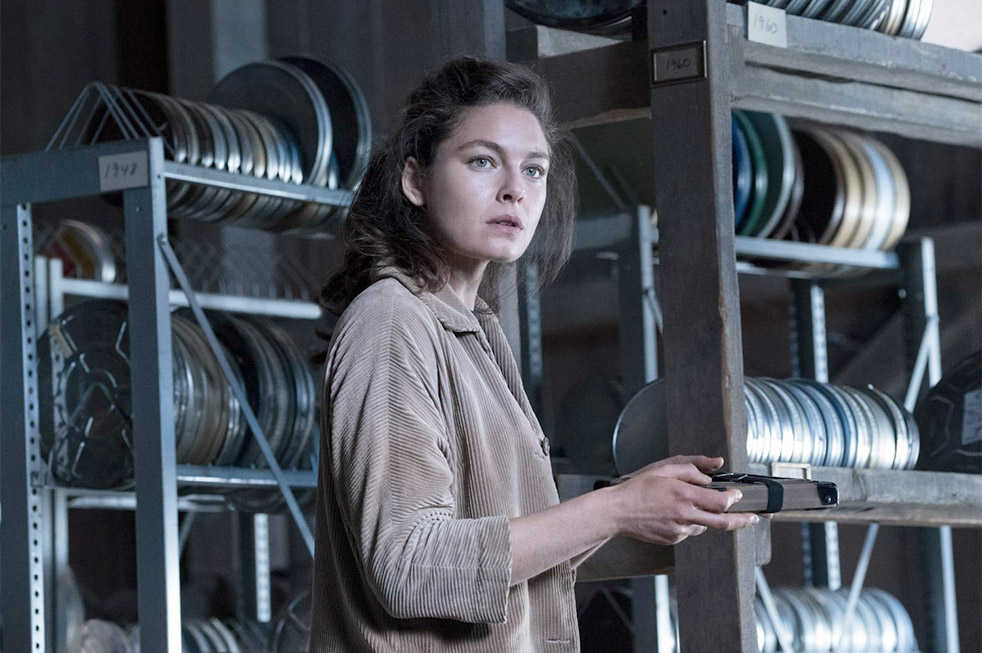“The Man in the High Castle” did nothing if not set a high water mark with its first season, which aired in full in November 2015. Not unlike the show’s fictional version of the Japanese empire, cracks have now become evident.
Despite its audacious and continued deviations from the source material, season one brought a convincing narrative with compelling characters. For the most part, season two of “High Castle” carries this onward. Cary-Hiroyuki Tagawa (“Planet of the Apes”) once again steals the show with his powerful depiction of Japanese Trade Minister Nobusuke Tagomi.
Rupert Evans (“Hellboy”) and Alexa Davalos (“Clash of the Titans”) return as Frank Frink and Julianna Crain, respectively. Both deliver great performances as each of their characters become increasingly entangled in the “resistance” movement.
Also praiseworthy is the production value of “High Castle.” Tagomi’s scenes in an alternate timeline are especially striking. The retro filtering used evokes a sense of ease, one so separate from the show’s almost constant tension. Those scenes stand out as some of the most introspective of the season.
Unfortunately, there are many spots in this season of “High Castle” that are less lustrous than the alternate timeline scenes. Take, for example, Joe Blake’s arc. Blake, played by Luke Kleintank (“Bones”), begins the season alive and on a boat, after being spared by Julianna Crain. He is also in possession of one of the oh-so-crucial films.
Blake then undergoes the first of several crises of conscience this season. He accidentally ends up murdering the entire crew of the boat he was on, including a man with bowling-ball eyes and a suitably hammed-up family story. At one point, Blake’s story seems to achieve a semblance of clarity when he resolves to begin anew a life of honest work. Sadly (for the viewers), Blake’s life is turned upside-down upon being summoned to Berlin by his father, who he apparently has never met.
In Berlin, Blake’s story takes a dreary turn for the worst. The writing staff of “High Castle” was under the impression that a hallucinogenic-fueled revelation about purpose and meaning was an original idea. Even if that was not so contrived, any convictions Blake developed seemed to evaporate towards the end of the season. In addition to these disappointments, the whole “Lebensborn” sidestory served no purpose in regard to the plot.
There could not have been a less meaningful character than the “Nicole” sidestory. Nicole Becker, played by Bella Heathcote (“Dark Shadows”) appears as a high-society Berliner who has a wild side. Her interactions with Blake are painful to watch. She meets him at a party, and the two show chemistry in the same way that an engine failing to start in the cold shows vitality.
In a similar vein, many threads in Julianna’s plot this season were hair-thin. The entire setup of the George Dixon reveal is done with such an air of drama that it seems like it could be an episode of “Maury.” Despite these dramatic flourishes, any emotional impact the writers supposed this scene would have is lost because Julianna’s sister Trudy was only a part of the show for mere minutes in the first episode of the first season. Then she died unceremoniously. Why exactly should viewers care about her so much?
Even the well-developed character of Frink is not immune to blunders this season. One-liners like “We bring the plague to Pharaoh” should have been left on the cutting room floor. Incidences like these flat lines, combined with the random novelty of the adventures of Ed and Childan, result in an overarching storyline that feels a bit too much at times.
Despite its weaknesses in the second season, the show still managed to be gripping and exciting. “High Castle” was renewed for a third season earlier this month, and hopefully it will live up to the standards of the first season.
